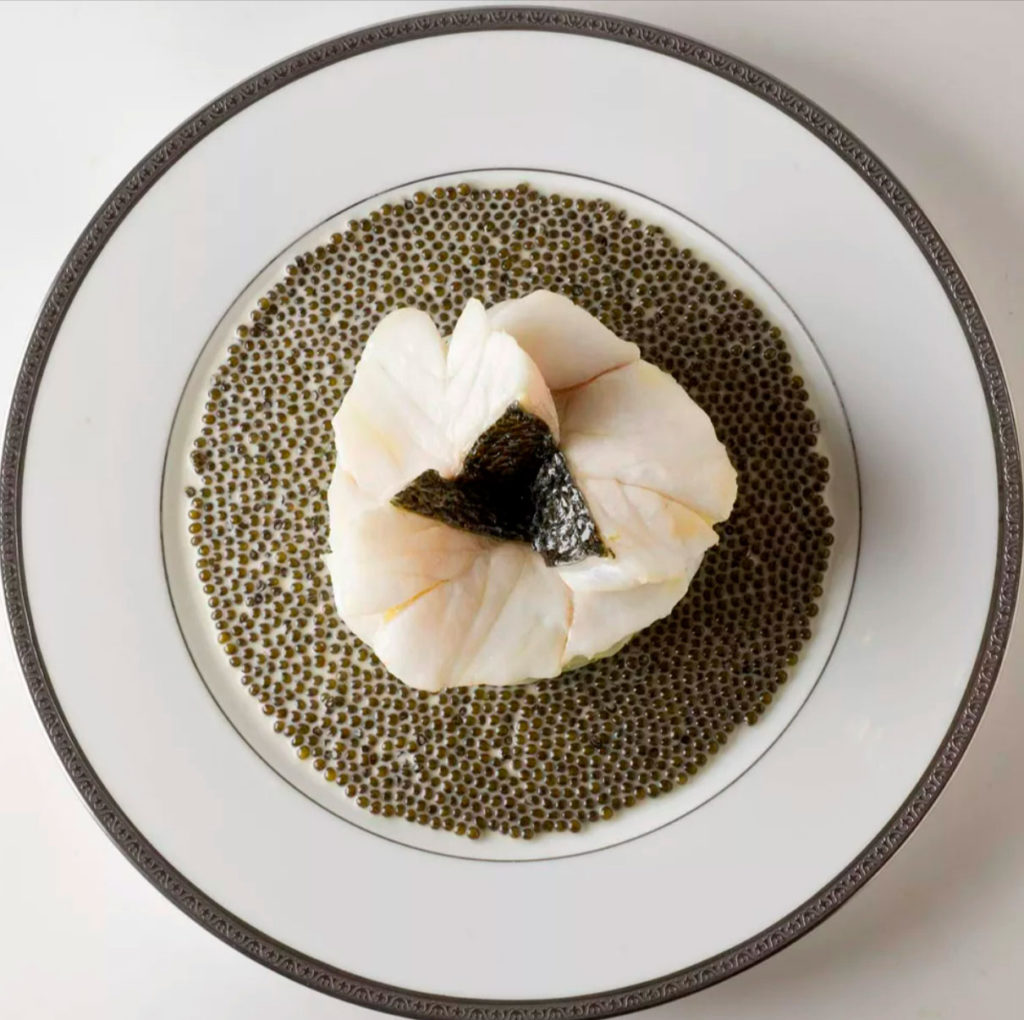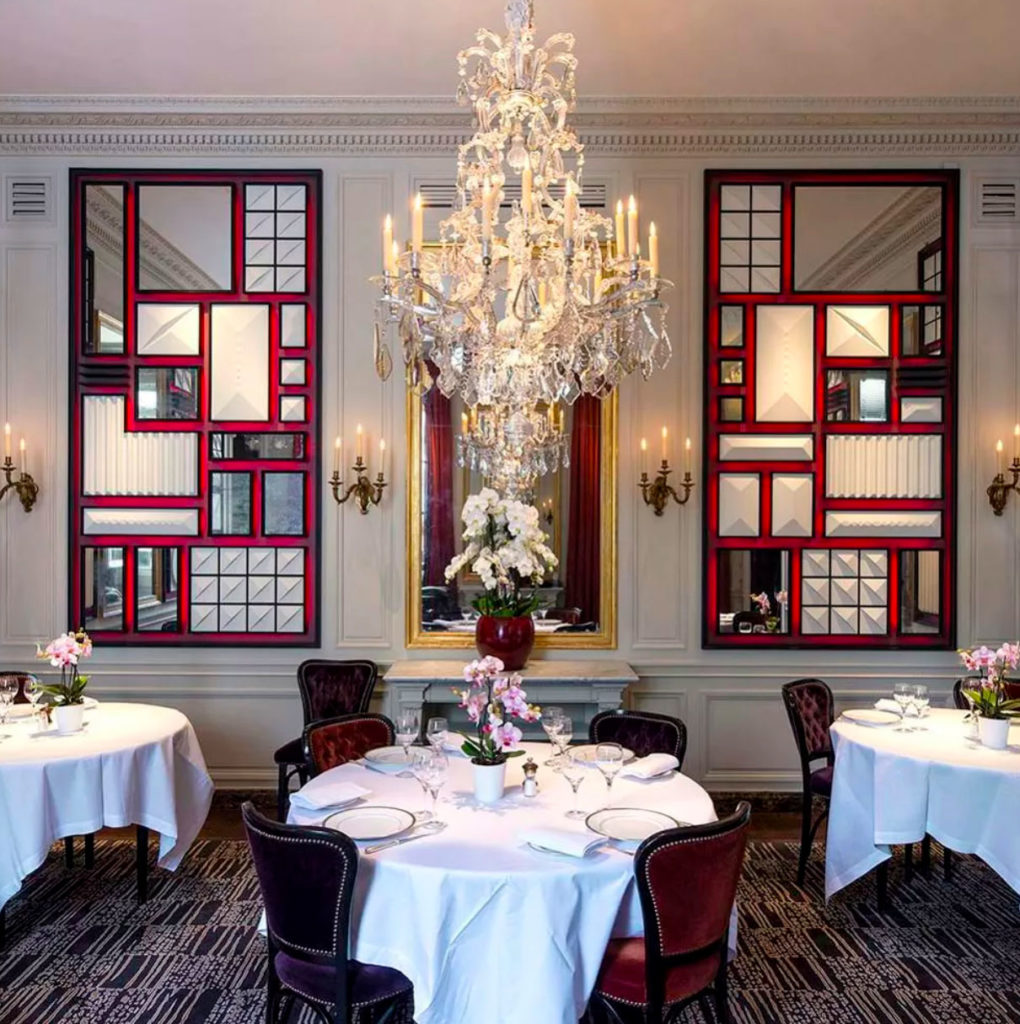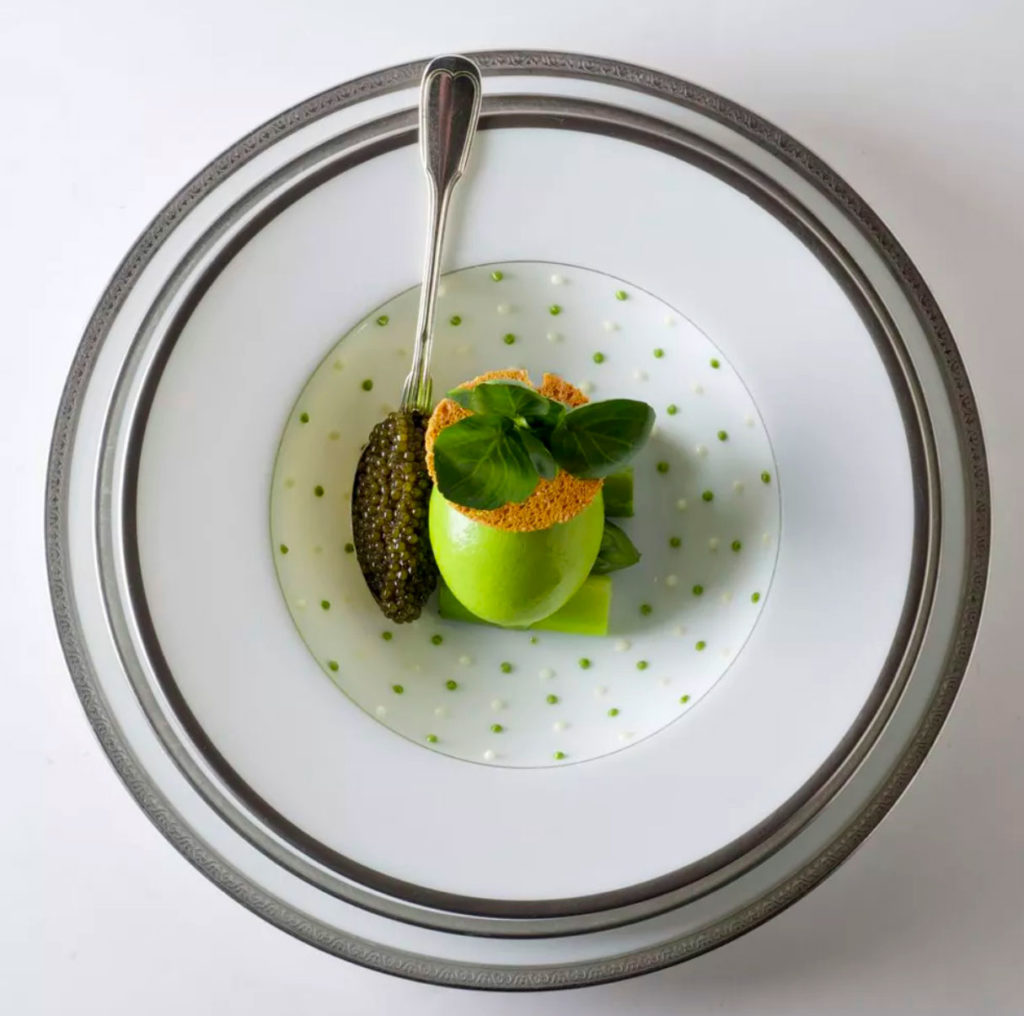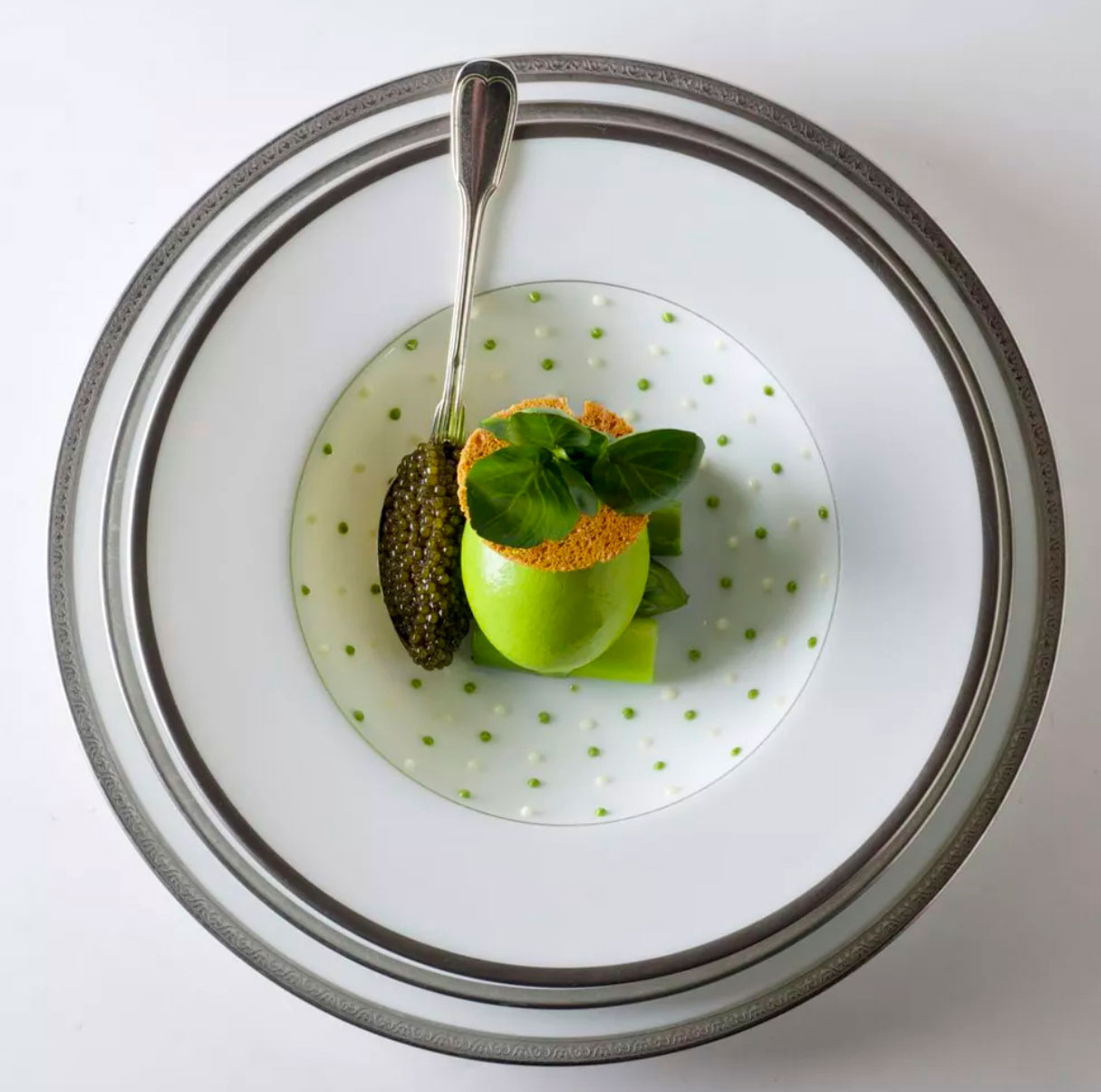Discover Bernard Pacaud, Three Michelin Star chef at L’Ambroisie in Paris. A full insight into his cuisine, philosophy, and legacy.
Bernard Pacaud, the discreet Three Michelin Star chef of Paris
Bernard Pacaud is a Three Michelin Star chef known for his precise interpretation of classic French cuisine. He runs l’Ambroisie, a restaurant located at 9 place des Vosges in the 4th arrondissement of Paris. The restaurant has held its three Michelin stars since 1988, making it one of the longest-standing three-starred restaurants in France. Pacaud’s name is regularly associated with technical excellence, consistency, and deep respect for traditional French cooking methods.

A life dedicated to French gastronomy
Born in Lyon in 1947, Bernard Pacaud grew up in a city known for its culinary traditions. He trained under Eugénie Brazier, one of the few chefs in France to receive three Michelin stars during her lifetime. Working in her kitchen in La Mère Brazier, he learned the foundations of rigorous technique, sauce work, and ingredient sourcing. These values would shape his professional path.
He opened l’Ambroisie in 1986, choosing a 17th-century townhouse on place des Vosges for its location and intimate setting. The name “l’Ambroisie” refers to the food of the gods in Greek mythology, but Pacaud’s cooking avoids abstraction. His cuisine is based on clarity, balance, and control. The menu is short and seasonal, often centered on seafood, poultry, and vegetables from trusted producers.
The cooking style of Bernard Pacaud
The cuisine of Bernard Pacaud does not aim to surprise. It focuses on the precision of execution and the quality of the product. One of his most noted dishes is the feuilleté de truffe fraîche, a puff pastry filled with black truffle and foie gras in a Madeira sauce. This dish illustrates how Pacaud balances texture, aroma, and richness, with very little ornamentation. He does not use molecular techniques or visual effects.
Portions are consistent, and presentation is simple. Pacaud’s team uses copper pans, gas heat, and manual preparation. No part of the process is delegated to automation. Fish is cooked à la minute and vegetables are trimmed by hand. These choices reflect a belief in craftsmanship rather than innovation for its own sake.
A full tasting menu at l’Ambroisie costs around €420 (about £360, $455). Wine pairing is optional and not structured as a fixed formula. Bottles range from €70 to over €1,200 (from £60 to £1,030, or $75 to $1,300). The average diner spends €650 (around £560, $700) for two persons.

A reserved figure in the world of French chefs
Bernard Pacaud rarely gives interviews and avoids television appearances. He is not part of the media landscape that includes chefs like Alain Ducasse or Yannick Alléno. His discretion is not a communication strategy but a personal stance. He manages his kitchen closely and has refused external investments and franchise offers.
He has not written cookbooks or opened secondary locations. The only branch of his professional legacy is his son, Mathieu Pacaud, who worked with him for over a decade. Mathieu left l’Ambroisie in 2014 to open Hexagone and other restaurants in Paris. The separation was professional and respectful, but it underlined the differences between the father’s classical focus and the son’s more modern approach.
This lack of expansion or branding has limited Pacaud’s international recognition compared to other French chefs. However, it has reinforced his reputation among chefs and dedicated gastronomes as a cook who maintains high standards without dilution or compromise.
The service and the experience at l’Ambroisie
L’Ambroisie has nine tables, spread over two salons with dark wood panels, tapestries, and chandeliers. The service is formal and unchanged over the years. Waiters wear black suits and provide minimal explanation, letting the food speak for itself. There is no music in the dining room, and mobile phones are discouraged. Reservations must be made weeks in advance, by phone. There is no online booking platform.
The clientele includes international food tourists, French regulars, and discreet personalities. Business lunches are rare due to the high pricing and the length of the service. Meals typically last 2.5 to 3 hours. The wine list includes about 1,100 references, mostly from Burgundy, Rhône, and Bordeaux.
Criticism and limits
Some critics have described l’Ambroisie as rigid and expensive, particularly compared to newer fine dining options in Paris. The menu does not change frequently, and innovation is limited. Dishes like langoustine with curry sauce or Bresse chicken in cream sauce have remained on the menu for decades. While some customers value this consistency, others find it out of step with the evolution of haute cuisine.
The restaurant’s aesthetic and service can feel outdated to younger audiences. The absence of digital communication and the refusal to engage with culinary trends limits its visibility among new generations. However, this choice aligns with Pacaud’s deliberate resistance to marketing and modernisation.
Despite these criticisms, Michelin has retained the three-star rating for 36 years, highlighting Pacaud’s continued technical mastery. The guide praises his ability to maintain quality over time, without fluctuation.

The future of l’Ambroisie and Pacaud’s place in French cuisine
Bernard Pacaud is now over 75 years old. While he remains active in the kitchen, there is no formal successor. His son’s departure marked a clear split in style and direction. The restaurant could be sold or closed when Pacaud retires, although no announcement has been made.
Pacaud’s legacy rests not on media attention but on his influence on other chefs. Names like Eric Frechon, Christophe Moret, and Mathieu Pacaud all trained in his kitchen. His insistence on manual technique, respect for tradition, and direct involvement in service are noted by peers.
His place in French culinary history is defined by consistency, discretion, and technical precision. For those interested in French gastronomy, l’Ambroisie offers an intact experience of haute cuisine as it was practiced in the late 20th century. It is expensive, limited in access, and selective by design.
Cook in France is your gateway to French cuisine and gastronomy in France. Get in touch for your next cooking workshop.
